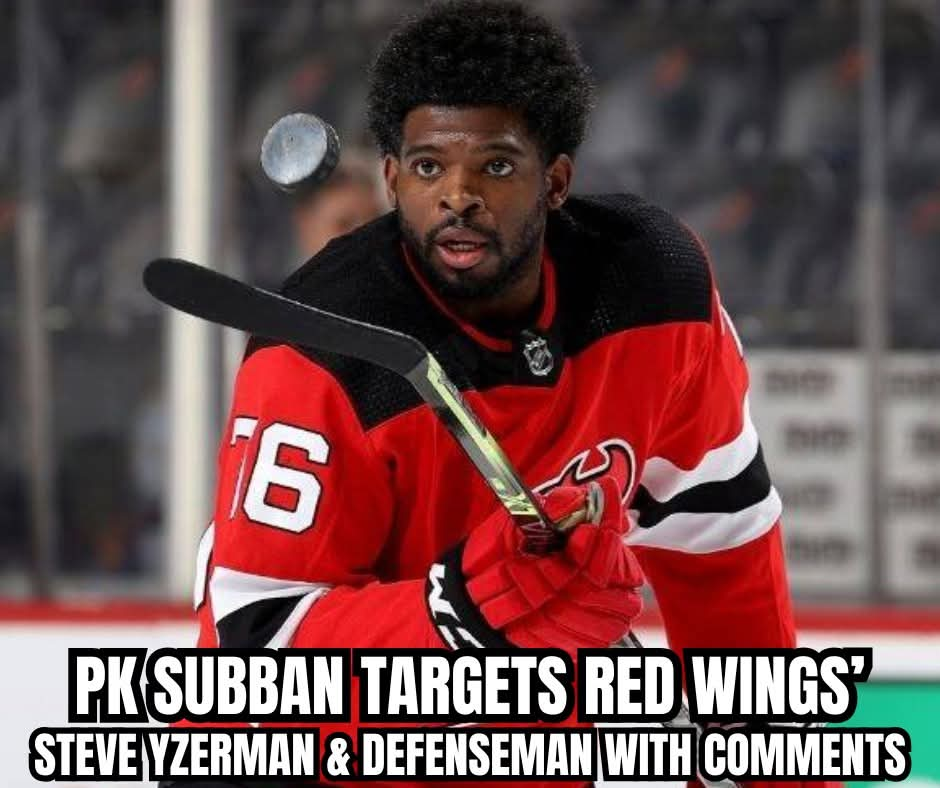Brock Boeser is on the verge of a major financial breakthrough, and NHL insider Frank Seravalli has outlined just how much it’s going to cost the Vancouver Canucks—or any team, for that matter—to secure his services going forward. As Boeser approaches unrestricted free agency for the first time in his professional hockey career, the buzz around him continues to grow louder. He’s quickly becoming one of the most desirable players available in this offseason’s free agent market.
According to Seravalli, Boeser is expected to command a lucrative contract, positioning him as the second most valuable free agent this summer—trailing only behind Toronto Maple Leafs star Mitch Marner. While the 2025 NHL free agent class may not be brimming with household names or superstar-level talent, it certainly includes some impactful players capable of significantly boosting any team’s chances for a deep playoff run, especially as organizations eye the 2026 Stanley Cup.
Boeser’s appeal isn’t just tied to his current production; it’s also about timing and potential. He’s entering free agency at 28 years old, which is relatively young compared to others expected to hit the market. Notable names like Brad Marchand, John Tavares, Matt Duchene, and Sam Bennett are all older and come with different expectations based on their age and performance trends. Boeser, on the other hand, is in the prime years of his career and has plenty of room to elevate his game further—especially if he lands on a strong offensive line with consistent linemates.
Frank Seravalli estimates that Boeser will be seeking—and likely to land—a six-year deal with an average annual value (AAV) of about $8.5 million. Such a deal would make Boeser one of the highest-paid players from this year’s crop of free agents. However, Seravalli also notes that in the context of the rising NHL salary cap and Boeser’s offensive output over the last two seasons, this contract could end up being excellent value. Over his last two campaigns, Boeser has scored a combined total of 65 goals, a mark that places him among the top-performing wingers in the league.
This strong performance is drawing the attention of multiple teams, all eager to add a consistent goal-scorer to their roster. In today’s NHL, the market for established wingers is hotter than ever. With so many organizations looking to build out depth in their top-six forwards, players like Boeser become especially attractive. His offensive skill set, combined with his age and work ethic, make him a perfect candidate for a long-term investment.
If Vancouver wants to retain Boeser, the front office will need to make some tough financial decisions. Given the Canucks’ current salary cap situation and the fact that they’re also trying to build a contending roster around stars like Elias Pettersson and Quinn Hughes, allocating $8.5 million per year to Boeser may not be an easy call. However, allowing him to walk would also be a significant blow to their offensive firepower and locker room leadership. Boeser has not only been a reliable scorer, but he’s also become one of the more popular players among teammates and fans.
There’s a growing belief that if Vancouver doesn’t act quickly and decisively, other NHL teams won’t hesitate to make aggressive offers to lure Boeser away. The Canucks are fully aware that other franchises will be willing to fork out serious money for a winger who’s not just proven but also still evolving. The age factor alone gives Boeser an edge over older free agents who may only have a few productive years left.
Critics may argue that Boeser doesn’t belong at the very top of this summer’s free agent rankings, especially compared to a name like Mitch Marner, who brings elite two-way play and playmaking ability. However, Boeser’s body of work—particularly his goal-scoring record and his durability in recent seasons—makes a strong case for his inclusion among the elite. His ability to consistently produce without always having a superstar center feeding him the puck is also a major plus. On a team with an elite setup man, Boeser’s stats could potentially soar to new levels.
The NHL’s rising salary cap is also playing a crucial role in reshaping what teams are willing to pay for top-tier talent. With more room to maneuver financially, many general managers are expected to be more aggressive this offseason, aiming to lock in high-quality players before the market gets too competitive. This benefits Boeser immensely, as teams look for players who can provide both immediate impact and long-term consistency.
A contract worth over $50 million across six years is certainly substantial, but it’s the going rate for players of Boeser’s caliber, especially when you factor in his age, production, and upside. The idea that an $8.5 million AAV might soon look like a bargain isn’t outlandish, especially if Boeser continues to trend upwards or lands in a system that plays to his strengths.
Ultimately, the Canucks are faced with a pivotal decision. Keeping Boeser means making a significant investment, but it also preserves one of their most consistent scoring threats. Letting him go, however, would not only leave a hole in their lineup but also risk empowering a direct competitor in the Western Conference. For Boeser, this summer represents a once-in-a-lifetime opportunity to cash in—and for NHL teams, it’s a chance to secure a player who could help push them closer to a Stanley Cup.
Whether he stays in Vancouver or signs elsewhere, Brock Boeser is set to secure a massive payday. All eyes will be on the Canucks’ front office in the coming weeks to see whether they are willing to meet his price—or risk losing one of their most valuable assets to free agency.



